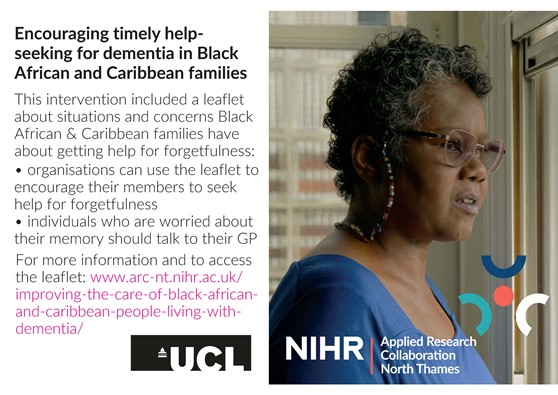Black African and Caribbean elders develop dementia more often and earlier than their white counterparts, but access dementia services later in the course of their illness.
This project set out to understand how black families respond to memory problems, a possible sign of dementia and what prevents them from seeking help from healthcare professionals earlier on in their condition.
The project involved multiple qualitative interviews with 50 black adults and found that:
- people delayed access to dementia services because they did not consider dementia an illness of Black communities
- people were discouraged from contacting healthcare services due to previous negative experiences with health professionals whom people found unhelpful, rushed or dismissive
- people feared negatives consequences of presenting with memory problems and mental health concerns, such as stigma, embarrassment and the threat of institutionalisation.
These findings was used to inform the development of an intervention, which consisted of a letter and a leaflet. This was piloted in a randomised controlled trial with patients of Black African or Caribbean origin via 5 GP surgeries and found to be acceptable. Our findings also indicated that a larger efficacy trial would be feasible.
Project details: Improving the care of Black African and Caribbean people living with dementia




